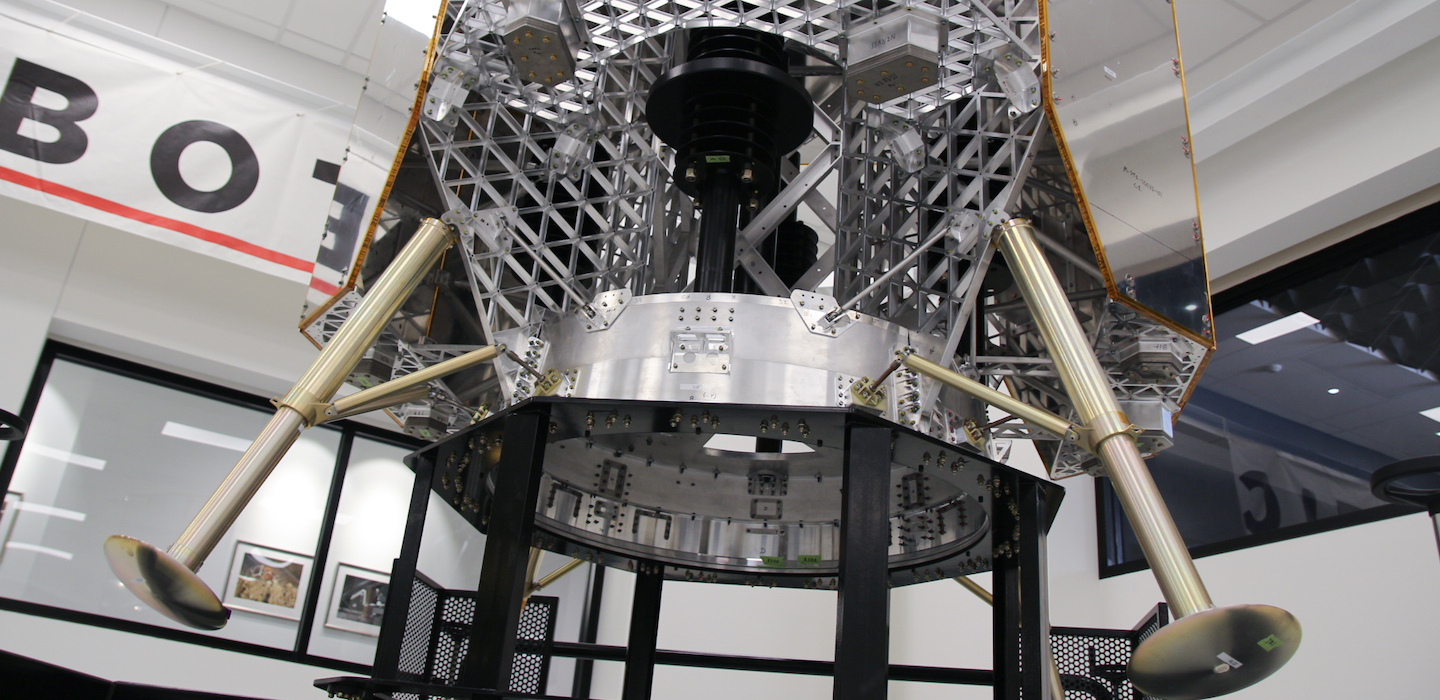In 2007, Carnegie Mellon University professor and robotics guru Red Whitaker and his associates founded the company Astrobotic Technologies to develop space-age robots for lunar expeditions. This was as ambitious as it was challenging, and the road for the past 13 years has not been an easy one. But Astrobotic has come out on top recently landing two large NASA contracts making the company an unquestionable poster child within the robotics scene across the country.
Born out of CMU and bred in Pittsburgh, it only makes sense for the company to be located here, but nonetheless they have had invitations from Houston and Cape Canaveral to set up shop in these cities with a history in lunar expeditions. The company has recently opened its brand new headquarters in the North Shore with big plans and a commitment to stay put.
We asked Astrobotic CEO, John Thornton, a few questions to better understand how this company came to be and what his thoughts are about building one of the hottest startups in Pittsburgh.
Question: Astrobotic has come a long way since spinning off CMU and moving into new HQ’s in Manchester. What is keeping you here in Pittsburgh?
John: Pittsburgh is situated in the center of an advanced manufacturing region with tremendous access to robotics talent through its world class universities. Our region boasts a strong work ethic, penchant for innovation, and a low cost of living with access to big-city cultural amenities.
Q: Can you tell us a little bit about the new Control Center? When you hear “Pittsburgh, we just landed on the moon” what will be happening at HQ?
J: When you hear “Pittsburgh, we just landed on the Moon,” you’re going to have to brace yourself for all the celebratory yells coming out of the North Shore! We will have landed the first commercial lunar lander on the Moon…ever. However, this is just the beginning of an eight-day-long mission on the lunar surface. Within a few minutes of landing, a dance of predetermined con-ops will kick in – such as the exact timing of when each scientific instrument will be provided power, provided data services, be deployed to the lunar surface (for those that will deploy), and conduct surface operations, such as scientific measurements. In collaboration with the Astrobotic team, all of our commercial customers who purchased a spot on Astrobotic’s Peregrine lander will be controlling their individual instruments from our Mission Control room. The transmissions that direct rovers and other scientific equipment will be operated from computers on-site. Each will be gathering data about the Moon for their own goals and purposes.
Q: Being based in Pittsburgh, you have privileged access to great talent coming out of CMU and other startups, but there are also challenges recruiting top talent across different disciplines – HR, finance, legal, etc?
J: We have found Pittsburgh to have an impressive and diverse talent pool covering all levels of experience and expertise. Many of our local candidates have been fascinated by space exploration since childhood but hadn’t found an option to pursue it professionally until they became aware of Astrobotic. Regardless of their discipline, our candidates are inspired by our mission to make space accessible to the world, and they want to support us however they can. For our part, we’re excited to give our hometown that opportunity, and we look forward to continuing to build a space community in Pittsburgh.
Q: What competitive advantages does Pittsburgh offer to a company like yours both in its early stages and on your current path to fast growth?
J: Pittsburgh is a city that offers a lot to attract and retain talent. The low cost of living blended with the high quality of life makes it an easy city for workforces to lay down roots. Combine that with an ecosystem of companies, facilities, and universities that have been built to innovate and you really have something nationally unique here in Pittsburgh.
Q: How would you compare Pittsburgh to Silicon Valley, New York or other tech hubs like Boston or Austin?
J: Pittsburgh has a rich history of being a builder of hardware. When you look at other tech hubs around the country, few of them boast the kind of heritage this city has in developing new materials and new machines. As a result, the workforce here is prepared to not just code, but to get their hands dirty with hardware. The challenge is showing the world that this is the next great center of innovation. We all know it because we see it every day, and now we need top talent from around the country to see it too.
Q: You moved from New Jersey to Pittsburgh for CMU. What were your expectations when moving to Pittsburgh and how did the city deliver?
J: It was not until grad school at CMU that I started venturing off campus to really explore and understand what Pittsburgh has to offer. It was at that time that Astrobotic was starting up and I liked what I saw in Pittsburgh and I have since made it my home.
Q: You are working with local companies and machine shops in the space area and have expressed an interest in making Pittsburgh a powerhouse for space robotics.
J: Pittsburgh has been involved in space history since the Apollo era, having manufactured much of the steel and glass hardware, as well as communications technology, for the Apollo 11 mission. Today, the region’s advanced manufacturing capabilities and world-class expertise in artificial intelligence, robotics, and space transport and logistics can propel Pittsburgh to an even more dominant seat at the table. In turn, Astrobotic has a strong leadership and representation in the PGH Space Collaborative and touts a commitment to supporting the local supply chain wherever possible. The PGH Space Collaborative’s goal, and our goal, is to become a space economic development organization committed to supporting the emerging global commercial space industry. We’re doing this by attracting and growing the next generation of space industry businesses and workforce talent in Pittsburgh and the region.
Q: Can you share a fun Pittsburgh story or anecdote with us?
J: In 2010, I bought a dilapidated house in Highland Park. It had no working water, electricity, or heat when I got it – but it had massive potential. I could not even live in it for the first year! It took ten years and lots of DIY work, but now my wife and I are finally putting the finishing touches on it.
Q: Do you have a special Pittsburgh secret? A hidden gem? Favorite spot, park, dive bar, art gallery, corner in Highland Park, or random place most people would be unaware of?
J: One of my favorite things about Pittsburgh are the rivers and the proximity to the outdoors. My wife and I spend most weekends exploring the Oil City region along the Allegheny river where the natural beauty is reminiscent of a Tolkien fantasy scape – the boating/floating is serene, the hiking and biking opportunities abound, and the wildlife is abundant. But perhaps most of all, the history of the region is so rich and dynamic it could be made into a Netflix series.
Q: What do you love most about Pittsburgh as a city and a place to live?
J: I really like that Pittsburgh has all the amenities of a big city but still has a small-town feel. I like that you can walk down the street and people will smile and acknowledge you. The people are not trying to be something or someone else. Pittsburgh feels real.
Q: What would you change about Pittsburgh to make it a better place?
J: There are two business worlds here in Pittsburgh. One world is that of the startup, early, and mid-stage tech companies working to innovate and push new technologies to market.
The other is the world of traditional businesses that have become the cornerstones and stewards of the city. Both play a vital role in the fabric of our city, but unfortunately, they rarely interact and work collaboratively together. Pittsburgh is a siloed business community and our experience growing a space company here in Pittsburgh has illuminated this divide. Over the years, we grew accustomed to ‘no’s, quizzical looks, and at times derisive laughs from the established business community. While our experience might be more extreme since we are building a Moon company, we are not alone. Some high-growth companies pick up and leave on account of receiving more support from outside the city. At Astrobotic, we use this outside skepticism to drive us forward in hopes that the future will be brighter. This is not criticism. This is opportunity. We are committed to this community – let’s make it better. Pittsburgh’s business community needs to bridge the divide and bet on our local innovators to deliver the Moonshots that will perpetuate this city’s legendary status into the next century. If Pittsburgh can grow a company that lands on the Moon, Pittsburgh can do anything.


